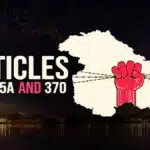G-20 Summit in IIOJK; Again a violation of International Law by India?
India is preparing to hold the G-20 summit in IIOJK in 2023 and its Ministry of External Affairs has already instructed the local authorities to make the necessary arrangements- quotes Indian media. Pakistan and China had already objected to India’s plan of holding meetings related to the conclave in Jammu and Kashmir related to the G20 summit in 2023 in Ladakh, in violation of and disregard for United Nations international resolutions on the disputed nature of Indian-occupied Jammu and Kashmir. India will host this event for the first time since August 2019, when J&K lost its special status and was split into the Union Territories of J&K and Ladakh.
The era of injustice, repression, and cruelty in Indian-occupied Kashmir coincides with the start of the Modi administration’s second term. Islamabad disagreed with New Delhi’s plan because it saw it as an effort on the part of India to publicly refute Pakistan’s claim to Jammu and Kashmir as an integral part of its territory. China echoed Pakistan, its “iron brother,” as well. According to spokeswoman for the Chinese ministry of foreign affairs, the conflict between India and Pakistan over Jammu and Kashmir should be addressed in accordance with the UN charter, and neither party should take any unilateral actions that would exacerbate the situation.
IIOJK was permitted to establish a separate flag and constitution under Article 370. As a result of this article, all of the Indian contrition’s provisions weren’t applicable in IIOJK and required local government approval. With the exception of defence, money, and foreign affairs, its abrogation was a blatant rejection of the rights to autonomy in all areas.
Along with denouncing India’s conduct on August 5, Pakistan has put in all efforts against Modi’s barbaric plans. Pakistan has also drawn attention to the risks that India poses as a result of RSS ideology. To this intention, China has also been outraged by India’s action, which unilaterally changed the status of Ladakh, a contentious territory. Kashmir is now essentially a trilateral dispute as a result of the Sino-Indian standoff in the Galwan Valley. The world has realised that until the Kashmir conflict is resolved, peace is not achievable. By emphasising the Indian government’s oppressive legislation in IIOJK, the US Human Rights Watch (HRW) exposed India’s true face to the world in its most recent report (India; events of 2020), which was published in 2022. Concern was raised in the study over excessive use of force and torture in the IIOJK during cordon and search operations, which led to the deaths of thousands of civilians. In its World Report 2022, the Human rights watch (HRW) encapsulated, “Allegations of torture and extrajudicial killings persisted with the National Human Rights Commission registering 143 deaths in police custody and 104 alleged extrajudicial killings in IIOJK in the first nine months in 2021.”
In Kashmir, the importance of democracy is consistently underlined. Under Article 370 of the Indian Constitution, Jammu and Kashmir was given a distinct status and is now recognised as a separate sovereign state. The fascist Indian government led by Modi regime has imprisoned thousands of Kashmiris since revoking special status on August 5 and imposed a military blockade on the territory.
In order to divert public attention, Indian Armed Forces have always found a convenient scapegoat – in shape of Pakistan – to divert public attention, not only from their incompetence and spectacular failures. In complete contempt of the territory’s widely acknowledged “disputed” status, India’s plan to host the G20-related talks in IIOJK are absurd and should not be tolerated by the international community. India is attempting to gain world recognition for an unlawful and oppressive occupation that has been going on for more than 70 years by putting out such a contentious proposal






